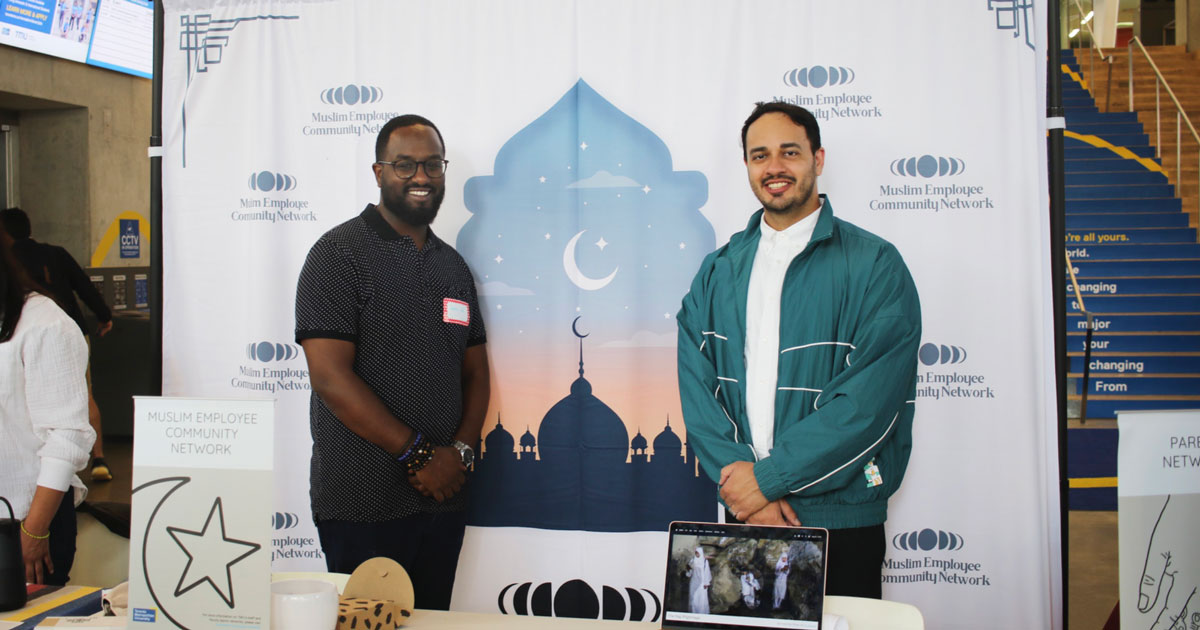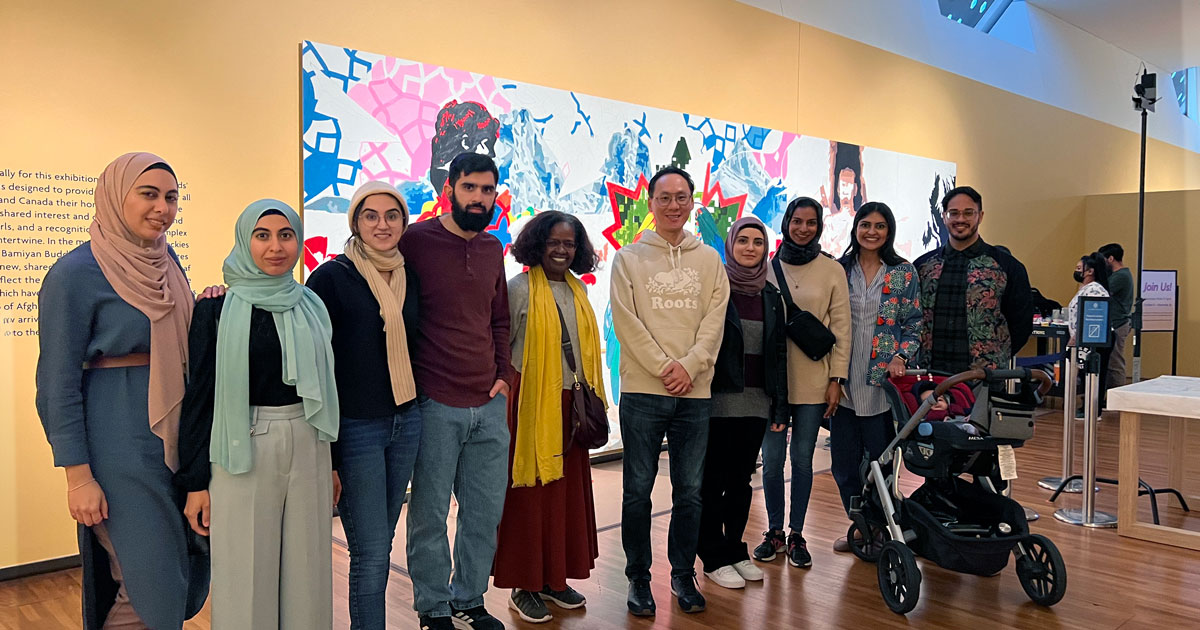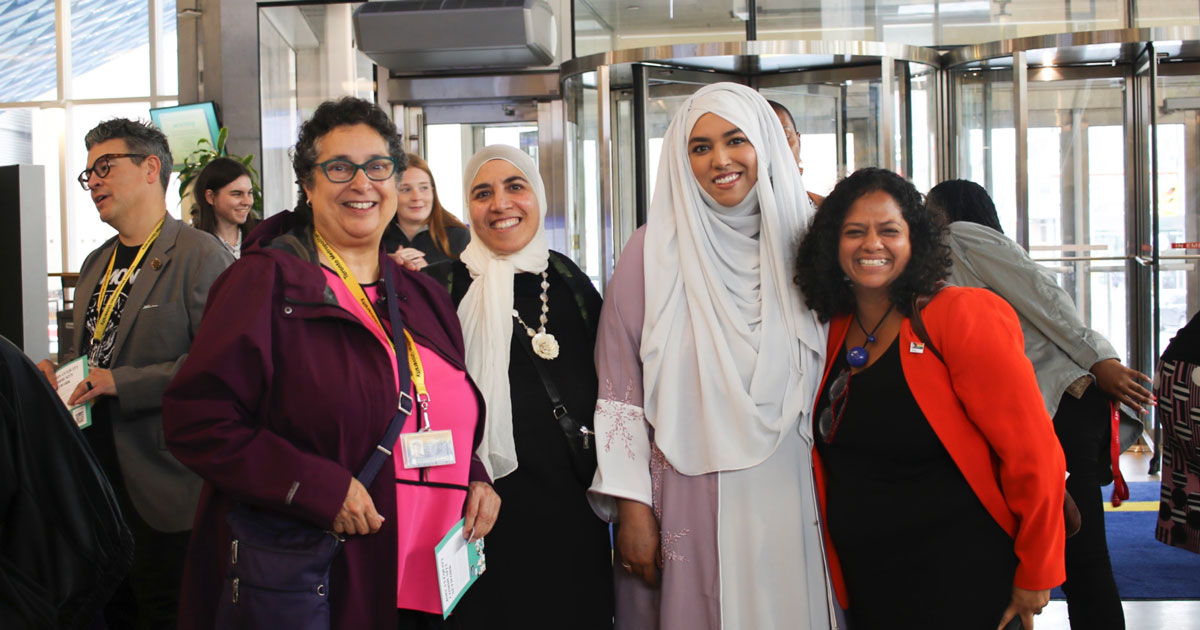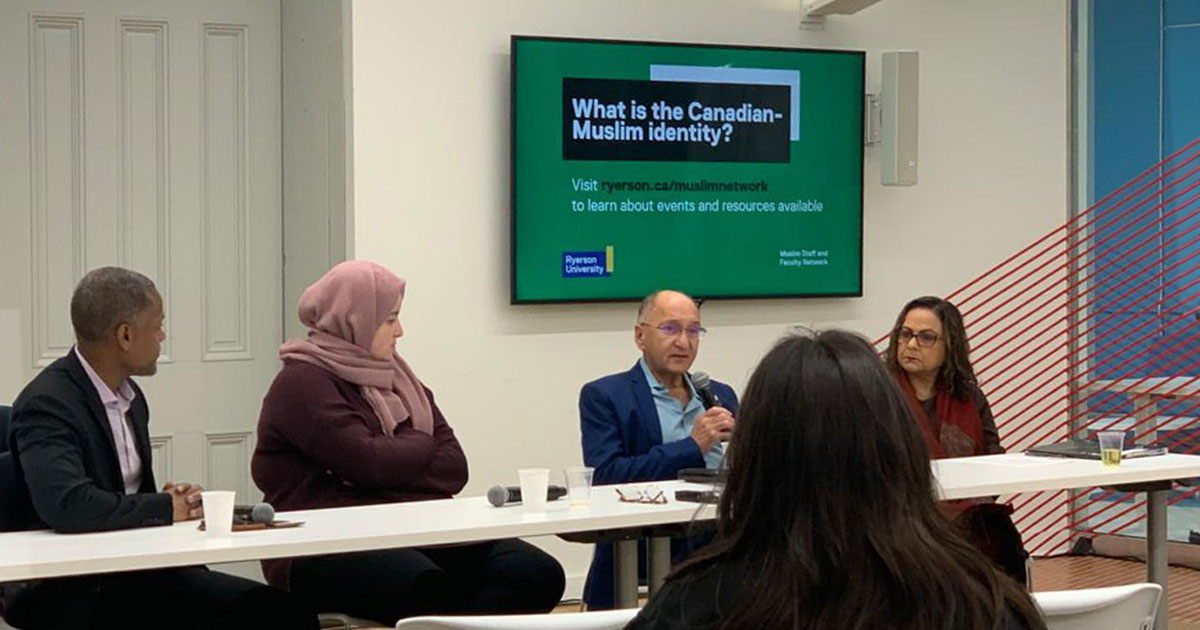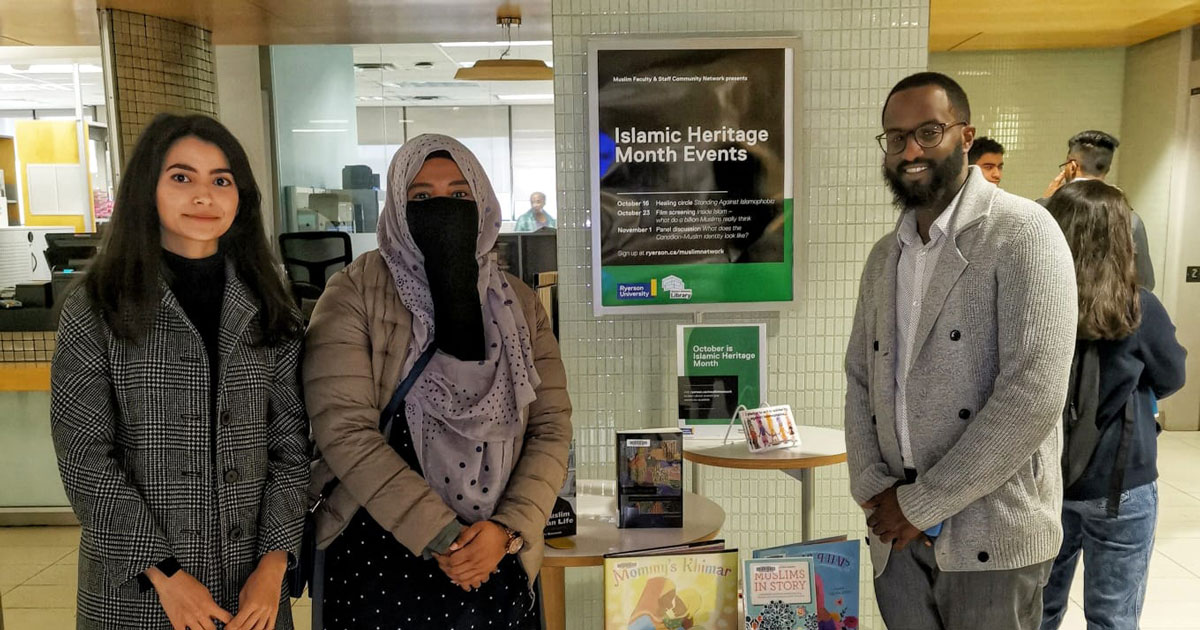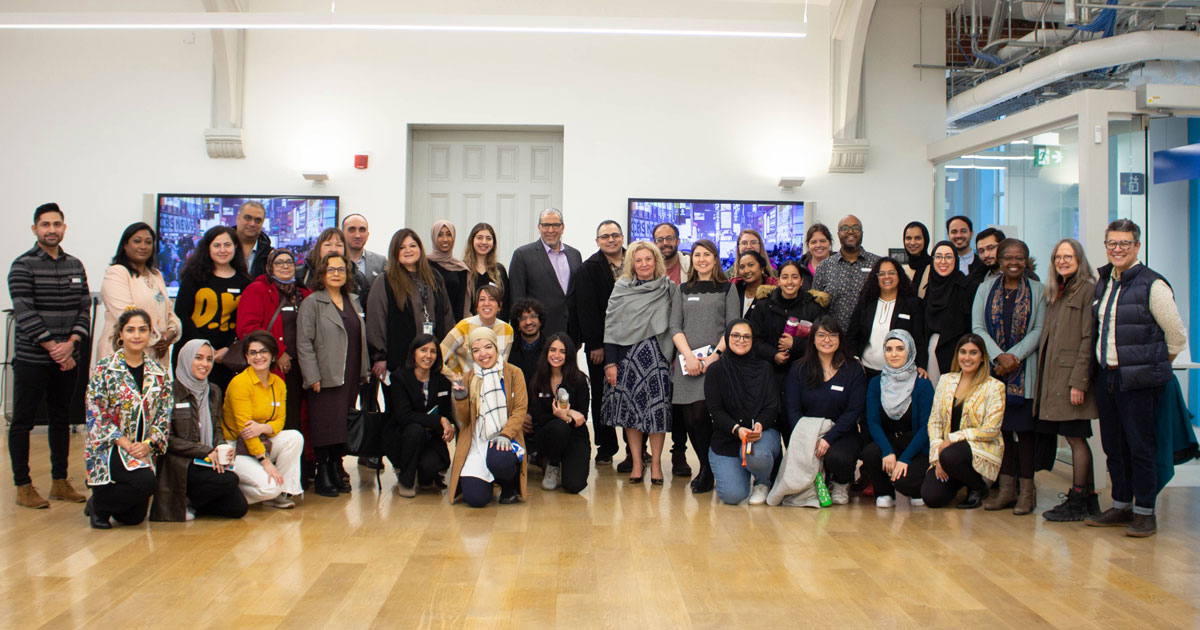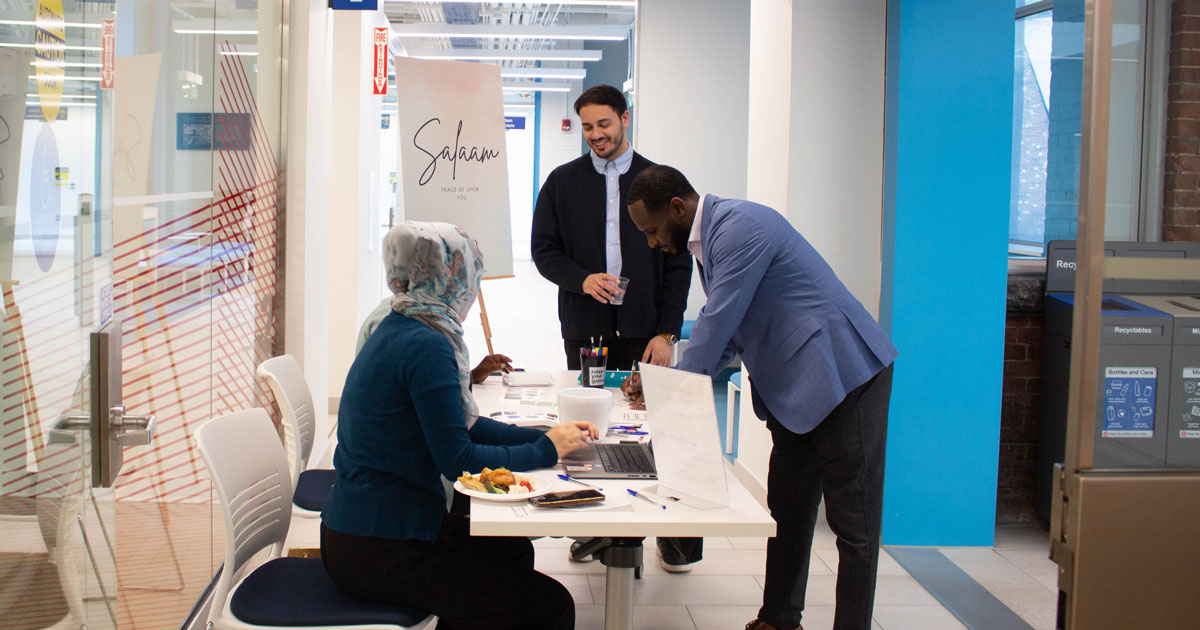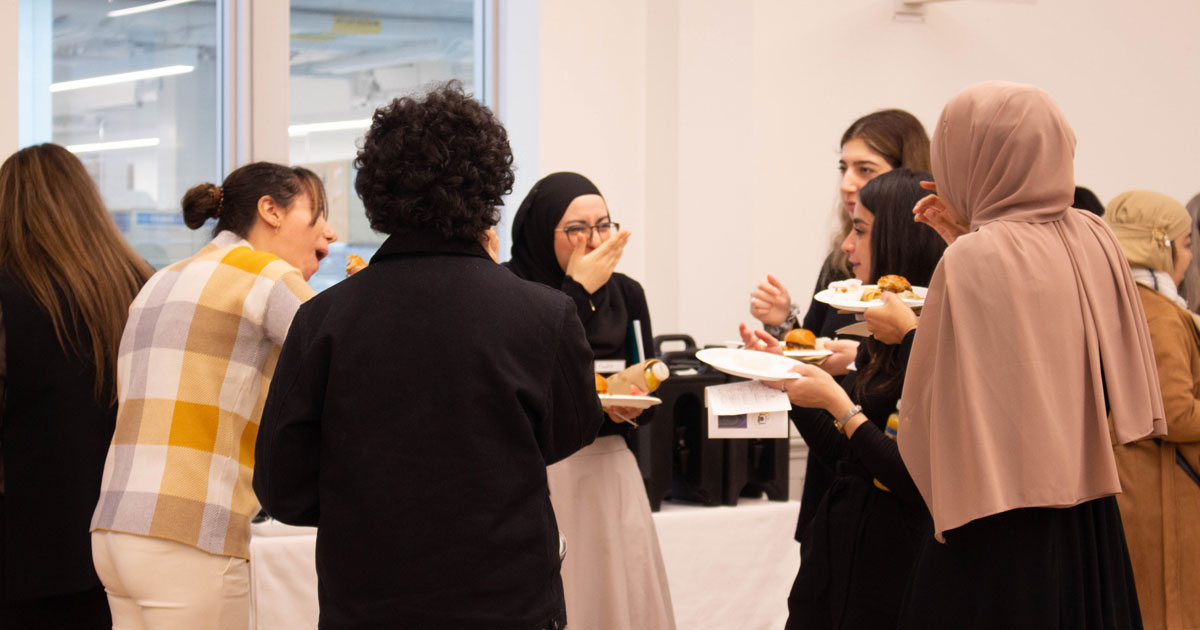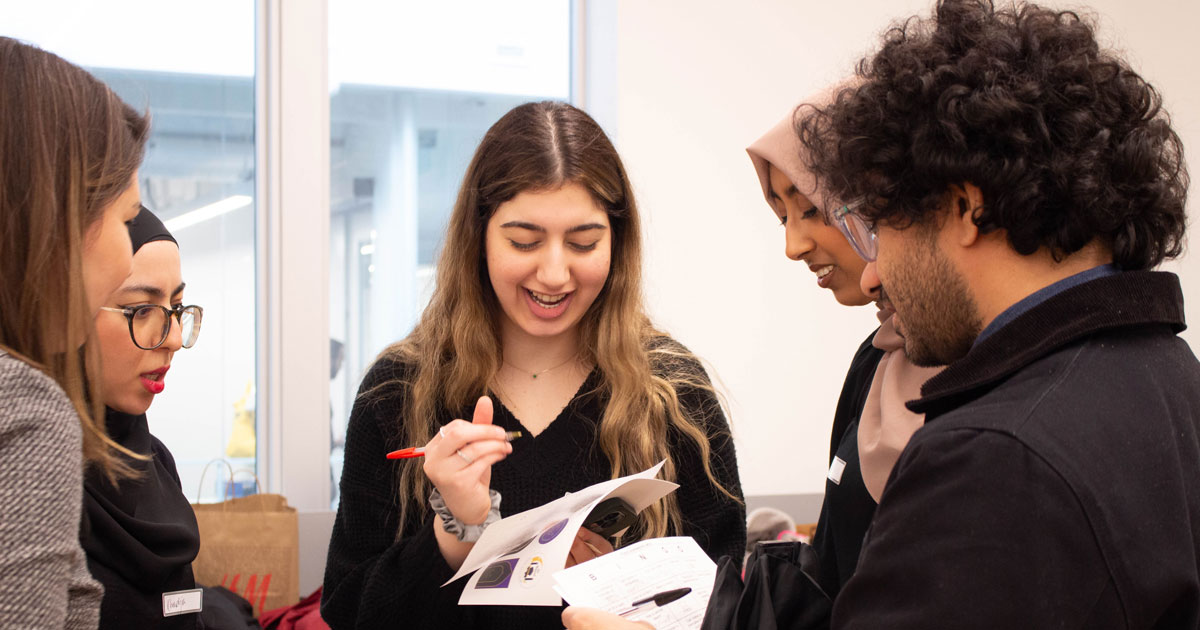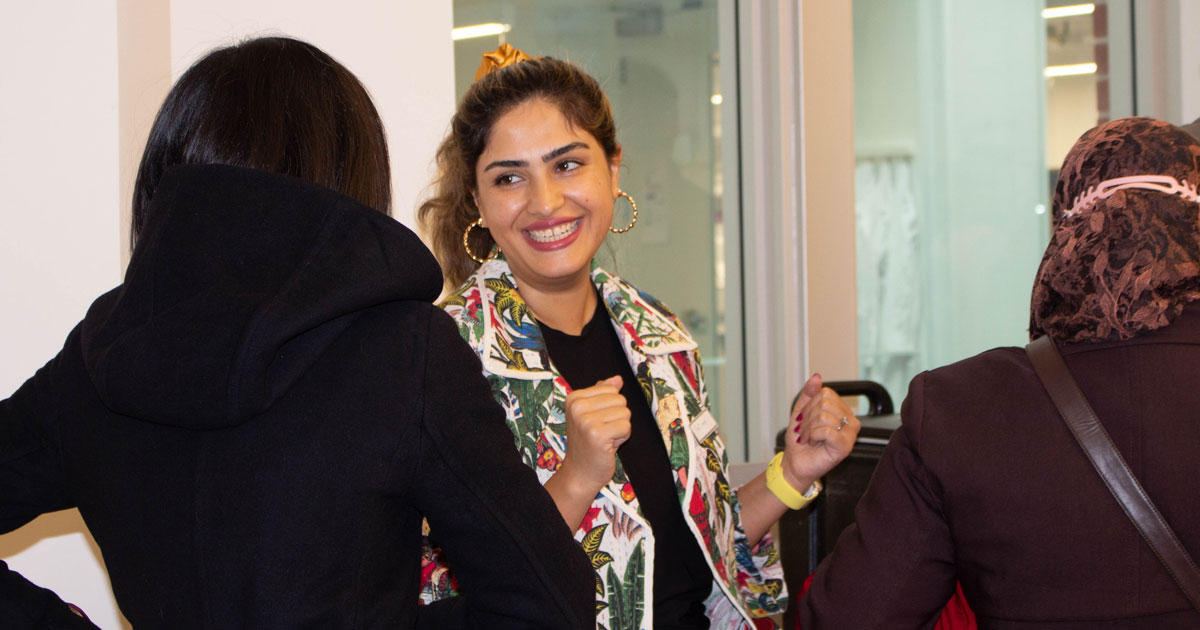Muslim Employee Community Network

Welcome to our community
We are a volunteer-powered, faith-based network representing Muslim faculty and staff at TMU. Our community network supports Muslim employees by providing content and connections relevant to the unique challenges Muslims face and advocating for resources that can help offer solutions. Our goal is to build awareness and bridge support for the complex, intersectional experience of Muslims at TMU.
A crescent moon symbol is often linked with Islamic communities. Our logo, representing the moon phases, demonstrates our respect for the broad spectrum of what it means to be Muslim and our aim to build community based on our similarities rather than differences.
All who identify as Muslim at TMU are welcome to join our network’s events, resources and safe spaces.
Stay up to date on the latest updates, resources and events
Resources for Muslims on campus
Spiritual counselling with Imam Yasin Dwyer
The Muslim Employee Community Network, in partnership with the Muslim Chaplain of Toronto (external link) , has arranged for Imam Yasin Dwyer to be available to students, faculty and staff for spiritual counselling, guest speaking and consultation with TMU student groups, faculty and departments as needed through the 2024–2025 academic year.
Chaplains provide professional and confidential counselling in areas including spiritual care and sustenance, academic and career counselling, coping with stress and anxiety, mitigating relationships, and dealing with religious doubt and uncertainty.
Book a 45-minute appointment in person or online
The number of sessions an individual can book is not limited, ensuring that everyone who needs support can receive it.
Appointments are available in-person or online.
Dates: Every Thursday from now April 28, 2025
Location: VIC building (285 Victoria St) or online via Zoom
Duration: 45-minute sessions
Services are free of cost and available for TMU community members. The Muslim Chaplaincy is a registered charity fully funded by community supporters.
Spaces on the TMU campus
There are a few dedicated spaces on campus, as well as a few quiet spaces that some frequent as prayer space:
|
||||||||||||||
Some community members may also use some hallways, stairways, empty offices or rooms as prayer spaces between classes or during breaks. We recommend you exercise caution and vigilance when doing so and, if possible, speak with your professor or manager about ways to increase safety.
Join the Muslim Student Association for weekly Jummah prayer
TMU’s Muslim Student Association hosts weekly Jummah prayer on campus. Check their Instagram (external link) to view the latest available time and location.
Masjids nearby the TMU campus
There are also masjids within a short walk of campus:
|
|||||||||||
Centre for Student Development and Counselling
Students are encouraged to contact the Centre for Student Development and Counselling.
Community Safety and Security
Community Safety and Security can help you file a report if you have been involved in a security incident related to Islamophobia, be it a verbal or physical attack.
WalkSafe Program
TMU’s WalkSafe Program is available for all community members 24 hours a day, seven days a week. To request WalkSafe, call 416-979-5040 or email walksafe@torontomu.ca.
Personal Safety Planning Sessions
Personal Safety Planning Sessions are also available for individuals, groups and teams.
Consent Comes First
Consent Comes First can support you with referrals, advocacy and advice if you have faced gender-based violence including gendered Islamophobia and sexual violence.
Human Rights Services
As part of the Office of the Vice-President, Equity and Community Inclusion (OVPECI), Human Rights Services can provide advice and coaching on responding to Islamophobia on campus and guide you through the process to report an incident or make a complaint related to Islamophobia.
Workplace Wellbeing Services
As part of Human Resources, Workplace Wellbeing Services can provide support with workplace accommodation requests and questions about sick leave for individuals who require time off or modified duties resulting from Islamophobia.
Employee and Family Assistance Program (EFAP)
Faculty and staff members can access support, including culturally specific, individual counselling, through TMU’s Employee and Family Assistance Program, Telus Health. This service pairs employees with counsellors who share experiences or specialize in areas such as gender, language, ethnicity, religion and more. To make a request, employees can contact the Care Access Centre at 1-844-880-9142.
Muslim Legal Support Centre (external link)
The Muslim Legal Support Centre (MLSC) aims to address the harms Muslims experience from Islamophobia, discrimination, and poverty by providing comprehensive legal services that meet their specific needs and concerns.
Canadian Muslim Counselling (external link)
Canadian Muslim Counselling provides diverse services supporting holistic well-being, including mental health and counselling services in the form of individual therapy, premarital counselling, marital and family therapy, and religious counselling.
Khalil Centre (external link)
Khalil Center is a psychological and spiritual community wellness center advancing the professional practice of psychology rooted in Islamic principles.
NCCM’s know your rights guides (external link)
Knowing your rights and responsibilities is an important step in ensuring that you and those around you are being treated fairly under the law. The National Council of Canadian Muslims has produced two guides to help empower employees and students to advocate for themselves where they work and study.
Responding to Islamophobia or hate
- Consider your own personal safety. If you are facing a crisis or emergency, please contact the appropriate services such as 911 and/or Community Safety and Security.
- Speak to your supervisor about how you can proceed. Facing hate in the workplace is challenging, and understanding the options available to you is often a major barrier. The process for reporting or escalating an incident will vary widely based on what has occurred. For example, reporting microaggressions will have a very different process than an incident involving violence.
- Consider contacting support services – well-being services, union representatives, Human Resources, and Human Rights Services are all examples of the types of groups on campus that may be able to support you by advocating for your needs or supporting you through the process.
- Consider external support services – the National Canadian Council of Muslims compiles incidents of Islamophobia and hate from across the country (external link) . You might also want to refer to legal services or contextually-informed counselling services such as the Human Rights Legal Support Centre (external link) , Canadian Civil Liberties Association (external link) , Ontario Human Rights Commission (external link) , Canada Human Rights Commission (external link) , or Canadian Race Relations Foundation (external link) .
Resources for our allies
We’re here to support allies in fostering an inclusive environment for Muslim staff and students at TMU. Whether you're leading a project, organizing an event, or developing policies, our network offers consultations to help ensure your initiatives are respectful and considerate of Muslim perspectives. By working with us, you can create spaces and experiences that are truly welcoming and inclusive for all members of our community.
Whether you are building your department’s EDI strategy or looking to make sure that your project is inclusive, please contact the Muslim Employee Community Network’s co-chairs.
Islam is the fastest-growing religion, fueled by a young and diverse population. Muslims come from a wide range of cultures across the globe, making the Muslim community one of the most culturally diverse. As a result, the experiences of Muslims often intersect with those of other equity-seeking groups, creating a rich tapestry of shared challenges and opportunities for advocacy. Read more about Islamophobia and anti-Muslim racism here.
Student-facing staff are frequently the first point of contact when students are experiencing distress. Familiarize yourself with strategies that can be helpful, especially when your role does not require you to act as a support service. Read more here.
If your role at TMU does require you to provide support services to students and you want to improve your understanding of Muslims students and their unique experiences, consider consulting with the Muslim Chaplain of Toronto’s spiritual counselling services (external link) .
Naseeha provides the Muslim Community with compassionate, culturally sensitive mental health support services. Its services are specifically built to support youth through a free 24/7 helpline, online therapy programs, and educational initiatives, helping them navigate life’s challenges with compassion and understanding. Learn more about Naseeha Mental Health (external link) .
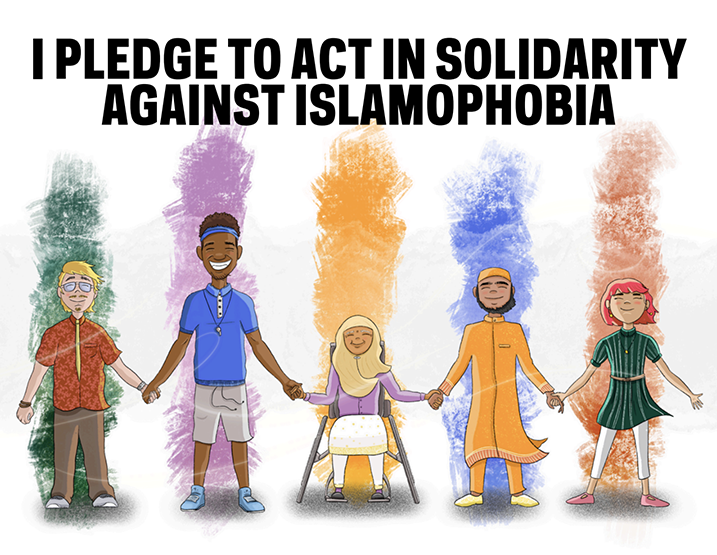
Display your pledge to act in solidarity against Islamophobia
Join the pledge to act in solidarity against Islamophobia by printing this postcard (external link) and displaying it in your office or communal workspaces and telling people about it.
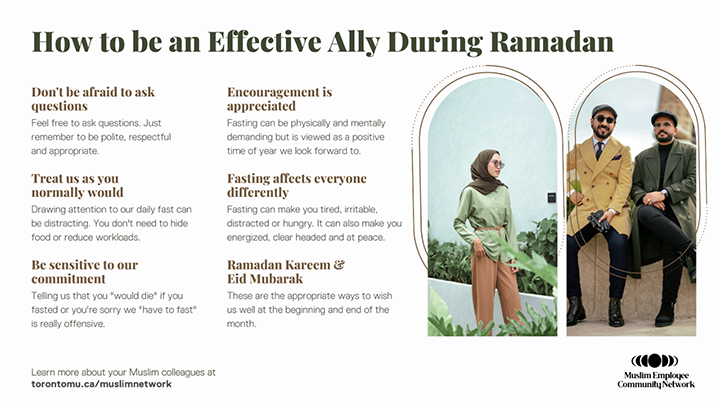
How to be an effective ally during Ramadan
Download this tip sheet (external link) on how to be an effective ally during Ramadan and share it with others.
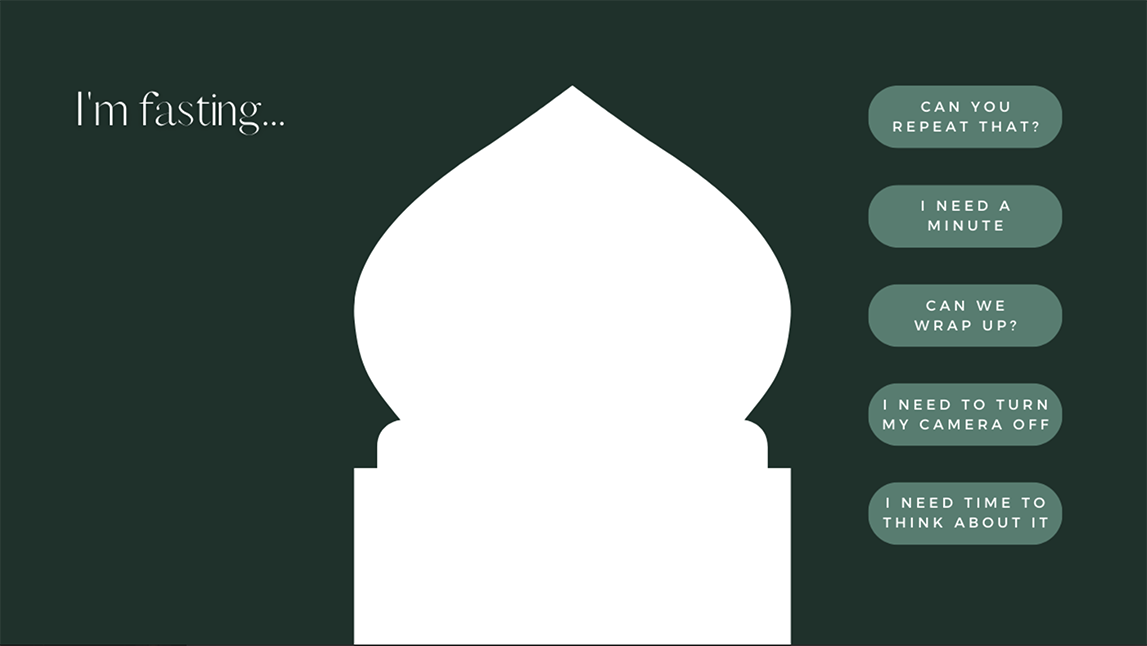
Ramadan-themed virtual backgrounds
Download a set (external link) of decorative Ramadan-themed virtual backgrounds for your next Zoom call!
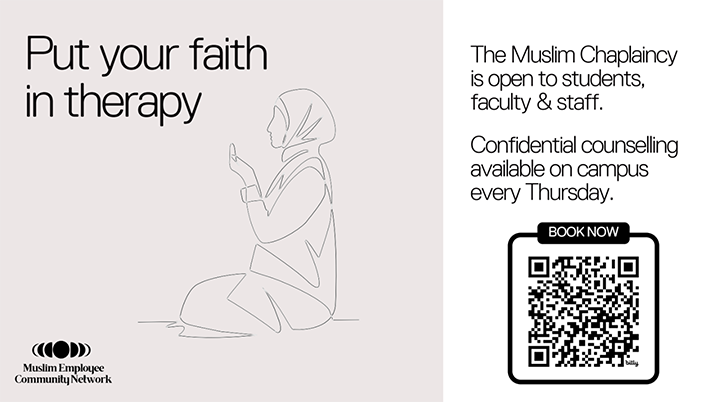
Chaplaincy promotional materials
Help encourage others to overcome mental health stigma by promoting the Muslim Chaplain of Toronto’s spiritual counselling services (external link) with this suite of p
Farhan Zia
Director, Programs and Strategic Initiatives
Office of Zone Learning and Strategic Initiatives
farhanzia@torontomu.ca
Imran Ali
Coordinator, Client Services
Office of the Registrar
imran.a.ali@torontomu.ca
